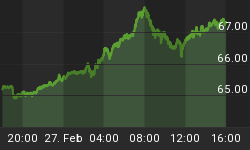Starting Tuesday, U.S. regulators will hold regular meetings on oil and natural gas pipeline safety standards. A series of pipeline issues, ranging from a deadly gas pipeline explosion in California, to a massive oil spill in Michigan, have brought pipeline safety to the forefront of the American energy debate. The safety meetings, scheduled in Virginia, come days after environmental regulators in Nebraska end a public comment period for Keystone XL, one of the most contentious U.S. pipeline issues.
The U.S. Pipeline and Hazardous Materials Safety Administration scheduled hearings beginning Dec. 11 in Virginia. During those meetings, safety committees are expected to review proposed rules related to pipeline damage prevention. PHMSA described the committees as " statutorily mandated advisory committees that advise PHMSA on proposed safety standards, risks assessments, and safety policies for natural gas pipelines and for hazardous liquid pipelines."
In October, the Nebraska Department of Environmental Quality announced it was finished with its draft evaluation report for the proposed reroute of the Keystone XL pipeline through the state. In its 600-page draft, the NDEQ found that TransCanada's new proposal "avoids the region that was identified as the Sandhills by NDEQ, which is based on extensive research conducted by various state and federal agencies several years ago."
NDEQ closed the period for written testimony on the reroute Friday. Bold Nebraska, an advocacy group opposing the pipeline, said this week that TransCanada's route remains problematic, however.
"TransCanada (NYSE:TRP) is still risking our aquifer and still risking the fragile sandy soils of our state," said Bold Nebraska's Executive Director Jane Kleeb in a statement. "When TransCanada first submitted their route to the U.S. State Department, their designation of the Sandhills was much larger and much more accurate to the reality of the Sandhills region."
Nebraskans get about 85 percent of their drinking water from regional aquifers, a November report published in the journal Environmental Science and Technology states. The study found few published groundwater case studies on the fate of tar sands oil, the type of crude designated for Keystone XL, but noted there may be a residual impact. The report recommended for the pipeline a "risk-managed route." That route targets a section of the state that was "intensely spray-irrigated, row-cropped (and) underlain by contaminated groundwater." This route, the report finds, would provide easier access should any emergency response be needed for Keystone XL.
Supporters of Keystone XL say the project is needed to ensure U.S. energy security and support jobs. U.S. Rep Fred Upton, R-Mich., chairman of the House Energy and Commerce Committee, said the pipeline could "create an estimated 100,000 or more direct and indirect jobs" for American workers. Detractors, like Bold Nebraska, however, said any potential benefits far outweigh the risks.
The journal report finds that pipeline spills have declined considerably during the past 10 years. While it's unclear what action the PHMSA may consider in its safety review, it's clear that, despite high-profile concerns like the so-called fiscal cliff, regulators are taking pipeline issues seriously as the North American energy boom gains steam.
Source: http://oilprice.com/Energy/Crude-Oil/Will-Regulators-Damn-Keystone-XL.html
By. Daniel J. Graeber of Oil Price















